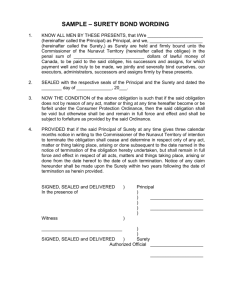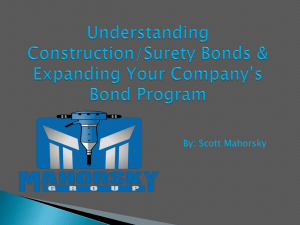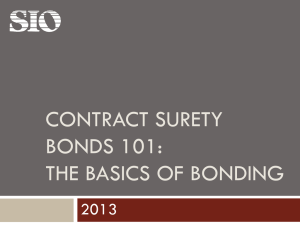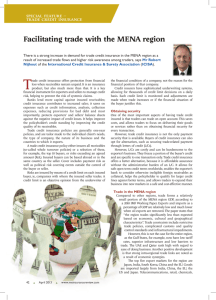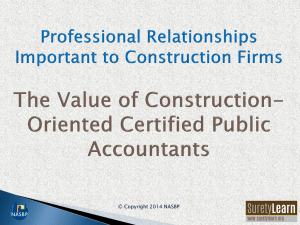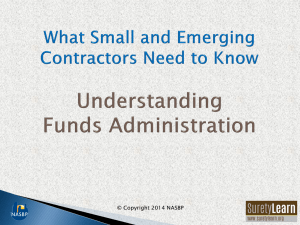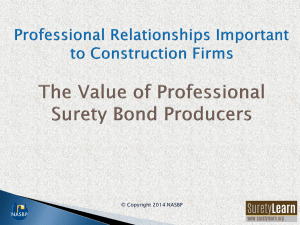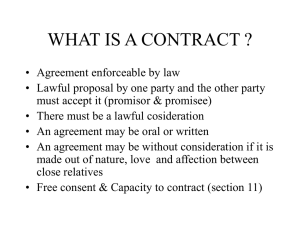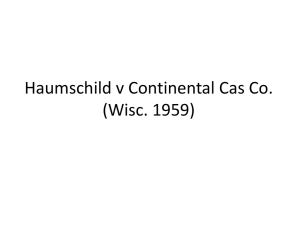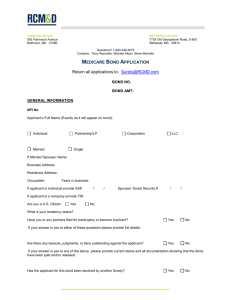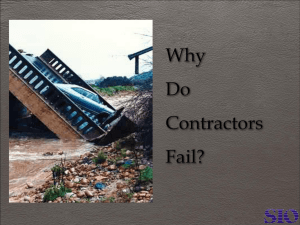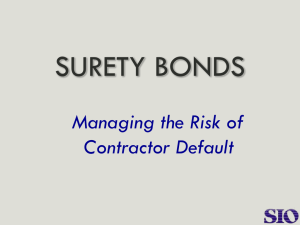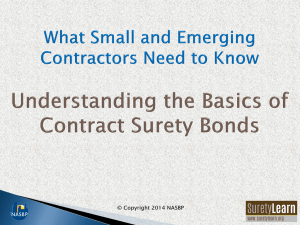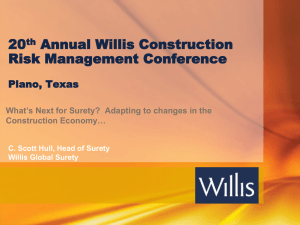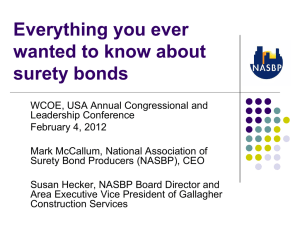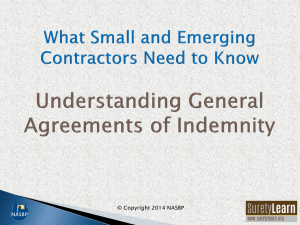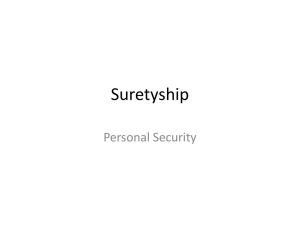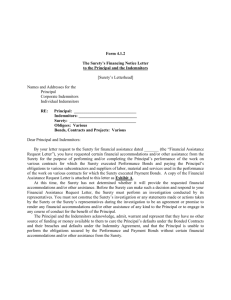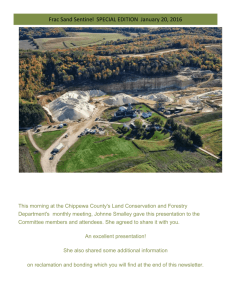The Value of a Knowledgeable Construction
advertisement
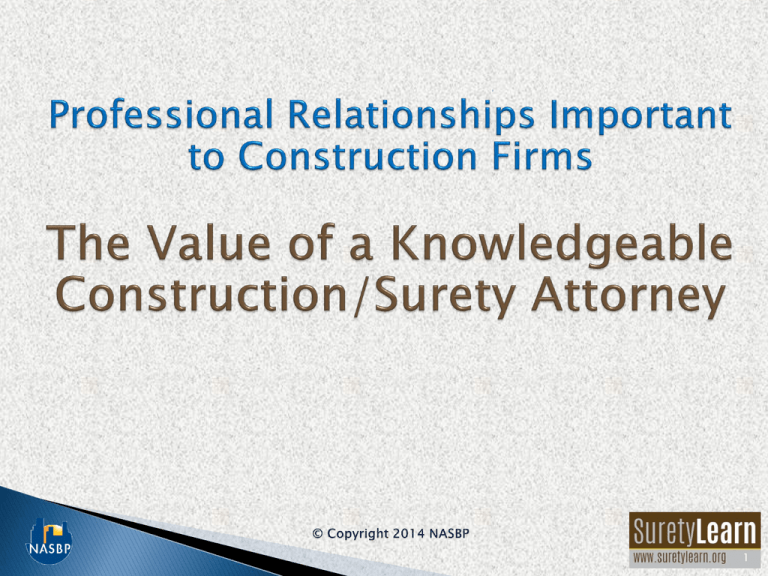
1 • Among the most important advisors to a construction firm are: – – – – • Professional surety bond producer Knowledgeable construction/surety attorney Construction-oriented certified public accountant Business banker This presentation will focus on knowledgeable construction/surety attorneys. 2 • • • • • • Attorneys who focus their practice on construction and surety law. They represent contractors, subcontractors, owners, design professionals, suppliers, sureties, and other construction industry stakeholders. They function as invaluable legal advisors and business advisors. They are licensed in the jurisdiction(s) in which they practice. Contractors should have a strong relationship with a trusted construction/surety attorney. Be sure your construction attorney is knowledgeable about contract surety bonds; not all are. 3 • • • Construction contracts: The core of construction law is the law of contracts and the legal relationships between the parties on a construction project. They should also know about construction financing, construction management, dispute avoidance, dispute resolution (mediation, arbitration, and litigation), surety bonds and insurance, construction defects, liens, government permits and inspections, agency relationships, labor and employment law, and business organizations and corporate law. In other words, a construction/surety lawyer needs to be familiar with all those areas of the law important to the construction and surety industries. 4 • • • Serve as a trusted legal counsel and business advisor to your business Draft, review and negotiate contracts, including surety bonds and indemnity agreements; analyze, resolve, prosecute, and defend contract claims; resolve disputes through mediation, arbitration; or litigation, among many other things In short, provide advice and counsel to the client, negotiate fair contracts, seek solutions to client problems, and guide clients through their business matters and disputes as successfully and cost effectively as possible. 5 • • • • • Assess the legal risks that arise from the terms and conditions in construction contracts and surety bonds and the proper way to allocate and handle those risks Help the client understand what its rights, obligations and duties are in all contracts Help the client avoid and manage disputes and problems If necessary, represent the client in dispute resolution procedures Do not be penny-wise and pound-foolish: it is far better to pay an attorney up front to negotiate a good contract than to pay an attorney later to represent you in a dispute under an unfavorable contract. 6 • • • • • Mutual trust Clear communication Commitment Responsiveness Availability 7 • • • • • What is your background and experience in construction law, including the law of surety bonds? How long have you practiced construction/surety law? Explain your knowledge of and experience with general conditions, change orders, delay impacts, warranties, mechanic’s liens, indemnification, the Miller Act, bid bonds, performance and payment bonds, insurance, progress payments, releases, dispute resolution, and governmental resources for small businesses (among others that are important to your business). How active are you in construction and surety industry bar associations and trade associations, such as local and state bar associations? What is your fee structure? How often will I be billed? 8 • • • • Will you be working on the matter yourself or will you involve associate attorneys and paralegals as well? If so, how will the work be divided and billed? What is your estimate of how much this will cost me? (Attorneys often cannot give an exact amount, but they should be able to offer an estimate.) How will you keep me informed of developments? (You want to be sure that your attorney keeps you timely informed of the status of your matter.) Do you offer free construction/surety newsletters and/or seminars to your clients? 9 • • • Check with the state bar association in your state to obtain a listing of attorneys who practice construction law. Seek the advice of your professional surety bond producer, who can serve as a valuable referral resource. You may wish to contact the relevant state bar association to ensure that the attorney is currently licensed and, although this is unlikely, to assess if he/she has been subject to disciplinary proceedings. 10

